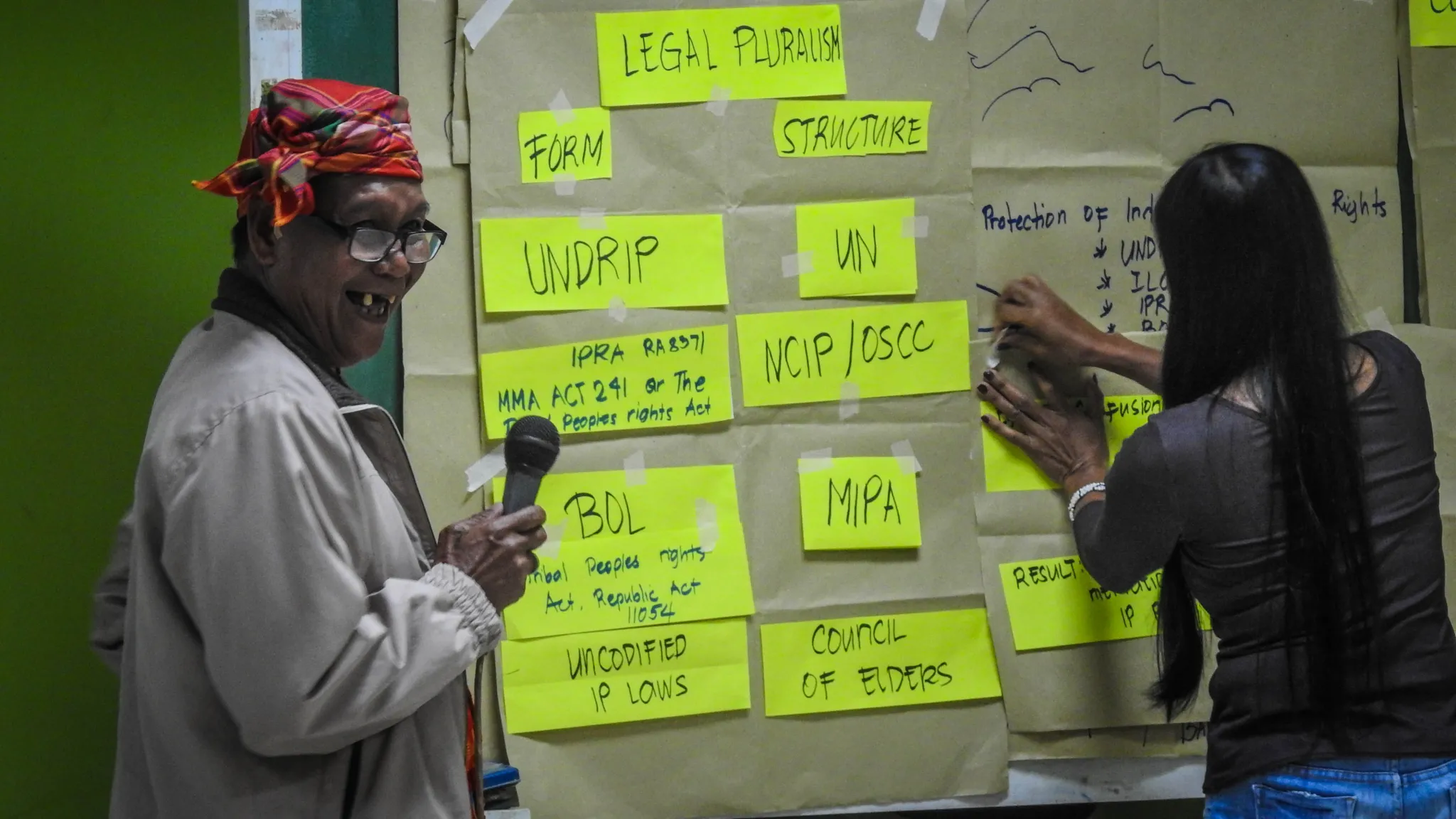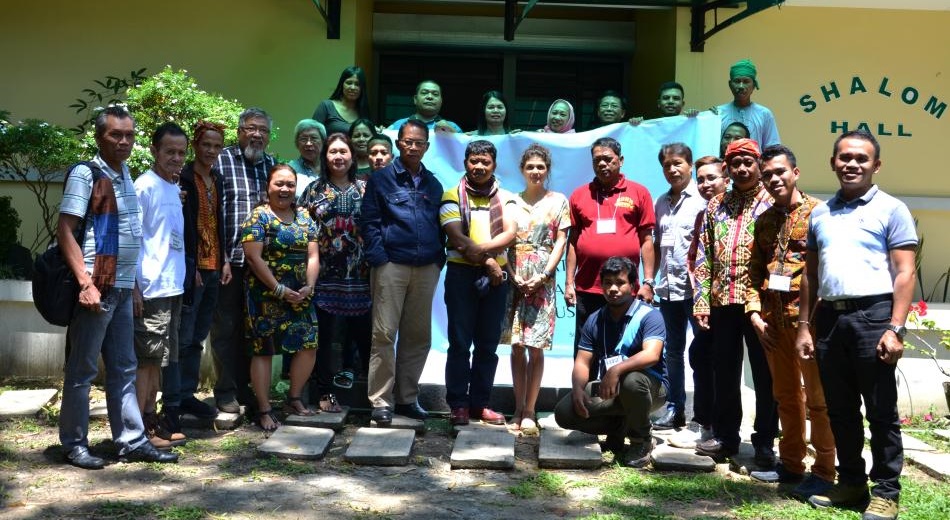International IDEA assists indigenous leaders in developing advocacy platform for new Indigenous Peoples Code in Bangsamoro

The first Indigenous Peoples’ Constitutional Assessment Tool (IPCAT) workshop was hosted to enable 30 participants from five IP communities recognized in Bangsamoro Organic Law (BOL), including Bangsamoro Transitional Authority (BTA) indigenous MP Romeo Saliga, to systematically analyze the legal framework for indigenous rights in BARMM as represented by the 1987 Constitution, national Indigenous Peoples Rights Act (IPRA, 1997) and the BOL.
The BOL gives the Bangsamoro Government signifcant authority over indigenous peoples’ rights in the Bangsamoro territory. This means that under the current constitutional order in the Philippines, indigenous rights are subjected to central government authority under the 1987 Constitution and the the IPRA , as well as to the actions and policies of the Bangsamoro Autonomous Government authority under the BOL. The BOL entails an obligation to ensure reserved seats in elections for non-Moro indigenous peoples and lists extensive indigenous peoples’ rights in Article IX Sec. 2. As such, the drafting of the Indigenous Peoples Code at the Bangsamoro-level provides a critical opportunity for indigenous communities, leaders and activists to promote their rights and interests. This moment of reform—in which new policies and institutions will be established—is one where the non-Moro IPs in BARMM can not only push for a maintenance of national rights standards, but also an improvement.

Developed by International IDEA, the IPCAT aims to help users analyze a constitution, draft constitution or other foundational law from the perspective of indigenous peoples’ rights. Using a series of questions, short explanations and international standards and example provisions from constitutions around the world, the IPCAT guides users through an examination of the most critical constitutional issues that affect indigenous peoples’ rights in 36 questions. The IPCAT can be applied in its totality, or used modularly based on relevant issues in the country in which it is being used. The international standards and comparative examples are meant to enable users to build an evidence-based advocacy agenda, enhancing their ability to collaboratively participate in constitutional and other fundamental legal reform. As such, the Mindanao Workshop was planned to help 30 participants participate in this key moment in history for IPs in the BARMM and to take advantage of the great opportunity in the legislative and institutional development accompanying implementation of the BOL to promote the protection of indigenous rights. This requires a better baseline understanding of what the current framework for indigenous rights entails and where this might fall short in ensuring the dignity and substantive equality of indigenous peoples in the Bangsamoro—an understanding the IPCAT workshop imparted.
The lead resource person for the workshop was International IDEA’s Constitution-Building Processes Advisor for Asia and the Pacific, Amanda Cats-Baril, who led sessions on the IPCAT and its methodology; key terms and concepts; constitutional implementation as a process; advocacy strategies; and self-determination, autonomy and conflict mitigation. Retired University of the Philippines professor and former member of the 1986 Philippine Constitutional Commission, Ponciano Bennagen, also served as a resource person to provide contextual knowledge on the state of indigenous rights in the Philippines under the 1987 Constitution; Bangsamoro Transition Authority (BTA) member Romy Saliga presented on tasks ahead of the BTA in relation to indigenous peoples in the BARMM, and Timuay Alim Bandara of Timuay Justice and Governance (TJG) who shared the challenges concerning the status of Mindanao IPs.

Participants developed action plans on the basis of the application of the IPCAT with a focus on issues of youth, related to education; land and ancestral domain claims; the development of the Tribal University called for in the BOL; ensuring the participation of traditional leaders and protection of traditional governance institutions within the BARMM; and ensuring that the BARMM-level Ministry on Indigenous Peoples’ Affairs was enabled to protect and promote the rights of indigenous peoples since the National Commission on Indigenous Peoples lacks authority in BARMM. The group will continue to liaison with support from IAG and MP Saliga committed to taking forward the lessons he learned in the IPCAT and applying them in the drafting of the IP Code.



